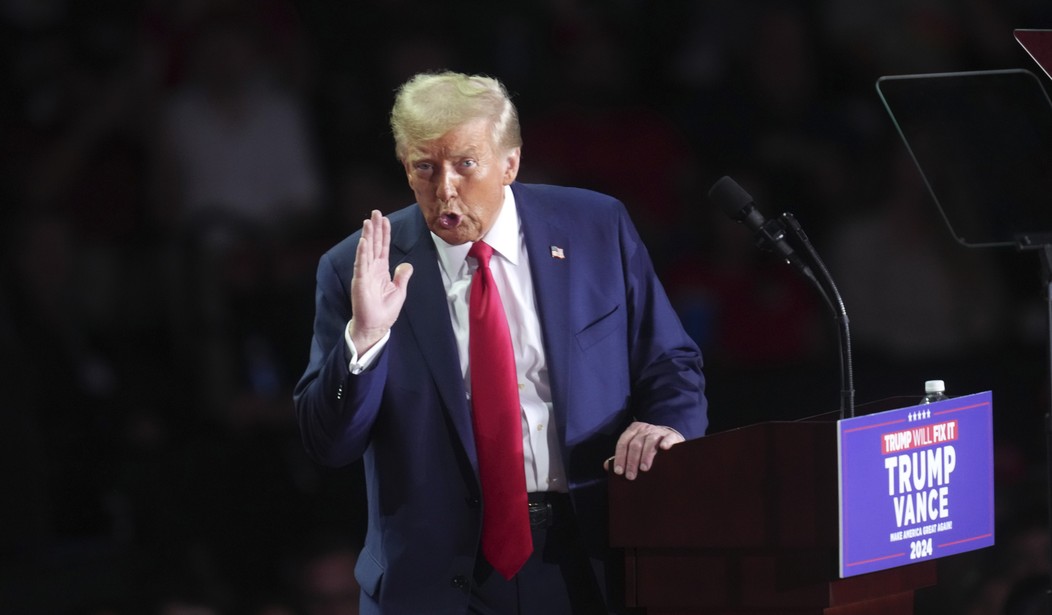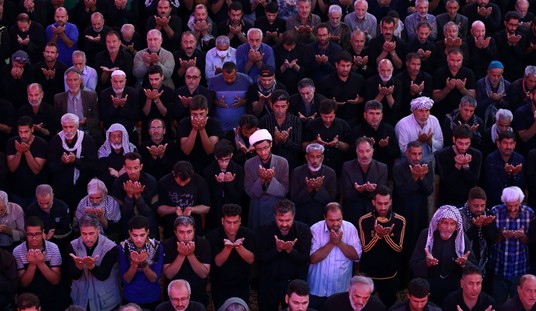Despite what you hear from Democrats, voting in the United States is ridiculously easy. Mail-in ballots, absentee ballots, provisional ballots if you're not sure, and ranked-choice ballots if you want to confuse everyone.
But before all that, there's registering to vote. This, too, is ridiculously easy, although potential voters must make an effort to sign up.
The funny thing about voter registrations is that they supply a "tell" for how an election will go. This is especially true in states where voters register by party.
Alex Castellanos, senior aide to the campaigns of Jeb Bush and Mitt Romney, told Fox News’s “Special Report” that the polls may have missed a "wavelet" of GOP enthusiasm.
“What I think they’re missing is a massive shift in voter registration underneath all of this. Thirty-one states have voter registration by party. Thirty of them in the past four years have seen movement toward Republicans,” the longtime strategist said late Sunday.
“I think there’s, I’m not going to call it a wave, but I think there’s a wavelet out there of Republican enthusiasm and registration. If I register to vote Republican, whether I’m switching or new, what am I going to do?”
Castellanos believes that the failure of pollsters to recognize the huge boost in GOP registrations might be one of the most important undercurrents of this election.
“I think the pollsters are getting this wrong. We’re all missing something because they’re giving us the same poll over and over again. There isn’t even statistical variation,” Castellanos said.
It comes as a handful of fresh polling over the weekend showed six of the seven battleground states so close that they are within the margin of error — with the only one showing a clear leader being Arizona, where Trump is up by four points.
Trump captured a 49% to 45% advantage in the Grand Canyon State, while two others show him tied with Harris — with each getting 48% in Pennsylvania and 47% in Michigan, according to the final batch of swing state polling from the New York Times and Siena College.
Harris eked out narrow leads within the margin of error among likely voters in Nevada (49% to 46%), North Carolina (48% to 46%), Wisconsin (49% to 47%) and Georgia (48% to 47%).
Nate Silver made the same point about the polls last week. Things just aren't adding up. If you look at voters' attitudes toward the economy, you wonder how Harris is even this close.
As Gallup has seen since inflation began rising in 2021, more Americans continue to describe national economic conditions as “poor” (46%) than as “excellent” or “good” (25%). Likewise, a much larger proportion say the economy is “getting worse” (62%) rather than “getting better” (32%). The average of these net perceptions results in a -26 score on Gallup’s Economic Confidence Index for October. This is based on Gallup’s Oct. 1-12 poll and is more in line with elections the incumbent party lost (in 1992 and 2020) than won.
Republicans also enjoy support on a trifecta of issues most important to voters.
Voters view Donald Trump as better able than Kamala Harris to handle the economy, 54% versus 45%. Trump also has an edge on perceptions of his handling of immigration (+9 percentage points) and foreign affairs (+5), while Harris is seen as better on climate change (+26), abortion (+16) and healthcare (+10). The candidates are evenly matched on voters’ impressions of who would better address gun policy.
Just under half of voters overall agree with Trump (49%) or Harris (47%) on the issues that matter most to them.
With a huge edge in recent registrations and a comfortable advantage on the issues, Trump and the Republicans should be in good shape. But this is a Crazytown election in 2024, and anything (and everything) is possible.










Join the conversation as a VIP Member